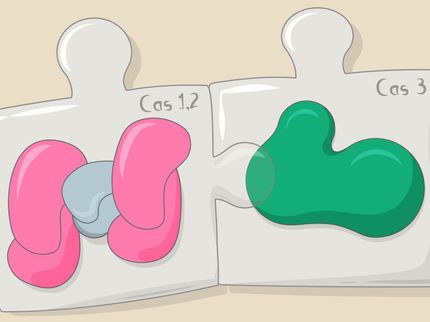Immunization Against Type 1 Diabetes - Mice Successfully Treated
Advertisement
Researchers in France and Germany have successfully treated type 1 diabetic mice with a vaccination. The vaccine they designed in this model included structures that the immune system mistakenly attacks in type 1 diabetes. The researchers showed that, in principle, it is possible to treat autoimmune diseases by inducing "active tolerance". That means activating the immune system so that it no longer attacks the body's own structures, but instead protects them from the immune attack. The paper of Dr. Roland S. Liblau of INSERM in Toulouse and Dr. Kirsten Falk and Dr. Olaf Rötzschke of the Max Delbrück Center for Molecular medicine (MDC) Berlin-Buch, has now been published online in PNAS.
Previously in an experiment with mice, Drs. Falk and Rötzschke proved that it is possible to block the misdirected immune system. They vaccinated mice with modified structures of the same organ against which the immune system runs amok. Structures which activate the immune system are referred to as antigens. The MDC researchers were able to show that the animals are protected from this autoimmune disease by means of the body's own antigens linked together in a repetitive chain of identical copies. However, how and why this protective mechanism works was not clear.
Immunization with body's own antigens opens up therapy for all autoimmune diseases In collaboration with Dr. Liblau in Toulouse, the two MDC researchers have now been able to prove that the protective effect of the immunization is due to the activation of the suppressor cells of the immune system. Suppressor cells block T cells.
However, suppressor cells raised against the body's structures selectively inhibit only those T cells that attack the body's own tissue. T cells that attack foreign structures such as viruses or bacteria remain unaffected by these suppressor cells. The immune system is thus again able to recognize the body's own structures as "self" and tolerate them.
"That is why suppressor cells have re-emerged as a promising research focus in immunology," Dr. Rötzschke pointed out. "Suppressing undesired immune reactions through specific immunizations with the body's own antigens will open up a fundamental new approach to treatment." The immunologist is convinced that it will be possible to treat not only type 1 diabetes but also other autoimmune diseases - both as prevention of the disease as well as therapy after disease onset.
Original publication: Eliane Piaggio, Cécile Cassan, Julie Cabarrocas, Maria Hofstätter, Sabine Desbois, Olaf Rötzschke, Kirsten Falk, Roland S. Liblau; "Multimerized T cell epitopes protects from experimental autoimmune diabetes by inducing dominant tolerance"; PNAS 2007.






















































